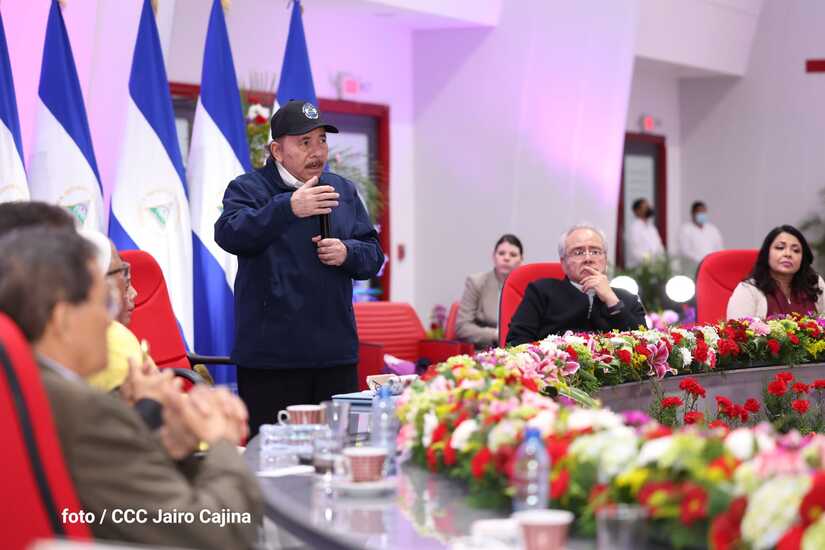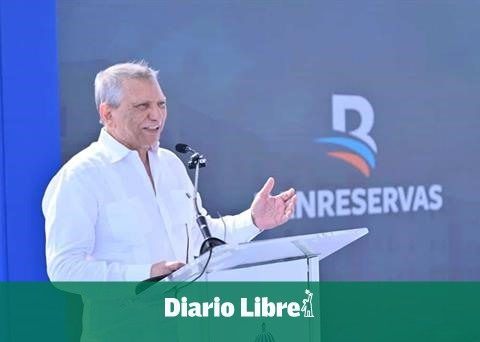Nicaragua stands out as one of the main exponents of the consolidation of authoritarianism and the deterioration of democracy, civil liberties and the human rights abuse in the region, along with Venezuela, Cuba and Haiti, according to the report Political Risk Latin America 2023, recently released.
The report groups Nicaragua together with these countries as the nations in which authoritarian regimes have consolidated and have become “failed states.” At the other extreme, Uruguay and Costa Rica establish themselves as the best qualified democracies in the region. The outlook for this 2023 that is beginning is not encouraging.
Download and read here in full: Political Risk Study Latin America 2023
“Everything seems to indicate that the outlook for 2023 will continue to be mostly negative. In Cuba and Nicaragua there is no willingness to initiate a transition to democracy. On the contrary, we see an intensification of repression. In Haiti, as a failed state, the challenge is to reduce the high levels of violence and stabilize the situation in order to create the conditions that allow for elections that should have taken place a long time ago; objectives that are not easy to achieve and that require a lot of help from the international community,” the report states.
“Venezuela is the only authoritarian regime that, with international support, has resumed negotiations with the opposition (in Mexico, at the end of 2022) to seek an electoral and democratic solution,” he adds.
No democracy or right to justice for political prisoners
In his first speech in 2023, Daniel Ortega He reaffirmed that he will not acquit the 235 political prisoners despite the “campaigns” for their release and assured that “not even with life imprisonment” could they compensate for the damage that, according to him, they caused Nicaragua during the massive protests of 2018, which returned to qualify as an “attempted coup” to which he added the qualification of “bloody”.
“We are seeing how they act with the greatest audacity. Here, where crimes were committed, if the criminals are captured, the campaigns come to set the criminals free,” warned Ortega. “Won’t the weight of the law fall on them? Is justice going to disappear before the terrorists, before the coup plotters? Not! Just as we defend peace, we have to defend justice and the application of justice against criminals”, justified the dictator.
The report, prepared by the UC Center for International Studies (CEIUC) under the coordination of specialists Jorge Sadh, Daniel Zovatto and Diego Rojas, warns that currently under the police state imposed by the regime of Daniel Ortega and Rosario Murilloyou cannot expect a political change in Nicaragua through elections.
Nicaragua, a consolidated authoritarian regime
“This year begins with the return of the pink tide to Latin America, where five of its largest economies—Brazil, Mexico, Chile, Argentina, and Colombia—are ruled by leftist forces. A pink tide consequence of the “punishment vote” in the region, where in the last 14 elections (from 2019 to 2022) voters punished the ruling party, with the exception of a Nicaragua, without democracy or free elections”, highlights the study.
The analysis warns that in 2023 on what qualifies as hybrid regimes; Governments that face setbacks in their democracies, but have not established themselves as totalitarian or repressive states. Under this concept, El Salvador, Honduras, Mexico, Ecuador, Bolivia, Guatemala and Paraguay were grouped.
Therefore, the study calls for paying attention to some points of interest in the region to prevent the political situation and the health of democracy in those nations from worsening, or, as in the case of Nicaragua, from translating into greater violations. to the human and political rights of its citizens.
“You have to focus on the general elections in Guatemala; the dictatorial regime in Nicaragua; the authoritarian drift in El Salvador; the evolution of the governments of Xiomara Castro in Honduras and Rodrigo Chaves in Costa Rica; the elections in the states of Mexico and Coahuila and the start of the electoral process for the 2024 general elections in Mexico; the internal elections of presidential candidates in Panama for 2024; and in Haiti, the course that the serious crisis affecting the country is taking and if the presidential elections that have been postponed for a long time will finally take place this year”, he quotes.
Daniel Zovatto, one of the specialists who was in charge of preparing the report, pointed out in a opinion piece published in CONFIDENTIAL Given this politically uncertain scenario, it was difficult to try to forecast what are the scenarios that the region may face in 2023.
“2023 will be another very challenging year and everything suggests that the ‘cloudy times’ will continue in the region. The combination of ‘hot streets’ and ‘irritated ballot boxes’ will complicate governability, making it, together with anemic growth and inflation, instability and insecurity, the biggest headaches for a significant number of Latin American governments”, Zovatto stressed.
Precisely in the case of Nicaragua, a special report published by CONFIDENCIAL He explained that the 2.1% economic growth forecast for the country in 2023 by the Economic Commission for Latin America and the Caribbean (Cepal) will be insufficient to lower poverty rates, in a context in which the regime is closed off from sources of income. international financing and, if the economy grows, it does so to a great extent because of external factors that can change without having the possibility of incidence.















